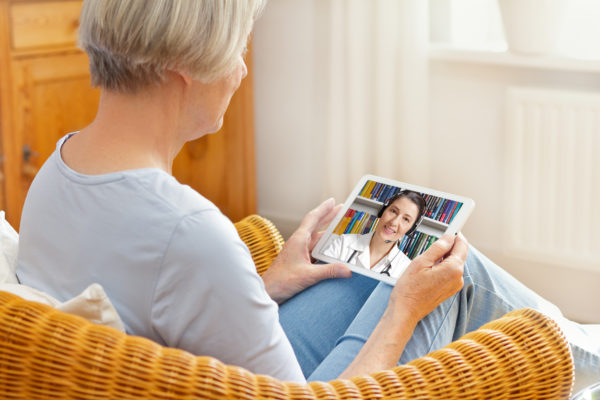Know Where to Go for Care
Get primary, urgent and emergent care for all of your healthcare needs.
Knowing where to go to get the care you need can be confusing, but Saint Mary’s Regional’s commitment to providing a broad range of healthcare services won’t change.

As always, it is important to seek out the right level of care.
Use your primary care provider during normal business hours for non-emergent conditions or symptoms.
Your primary care provider knows your medical history and should be your first line of defense for any illness or disease that isn’t a medical emergency. Think cough and cold, flu, stomach upset, chronic conditions like diabetes or high blood pressure, and more. Primary care providers should also be your regular resource for preventive care, including annual wellness visits, routine vaccinations, smoking cessation, diet and exercise consultations, and more.
It is safe to visit your primary care provider, but most will ask that you wear a mask during your visit. This helps to protect you, staff members and other patients. You may also notice that there are fewer people in the office, and that’s ok! Many providers are intentionally spacing patient visits to support social distancing measures.
Your provider may be offering telehealth services during this time in an effort to support social distancing while continuing regular patient care. Providers offering telehealth may meet with you over the phone or through video conferencing. Check your provider’s website or call the office to determine if telehealth is available and appropriate for your needs.
Use an urgent care or walk-in clinic for moderate or worsening symptoms after normal business hours or when prompt primary care is not available.
Using an urgent care or walk-in clinic is a great option if your primary care provider is not readily available, or if it is after normal business hours and your primary care provider’s office is closed. Urgent cares and walk-in clinics commonly treat people for cough and cold, flu, ear infections and allergies, skin conditions, minor injuries and more. Some urgent care or walk-in clinics have x-ray capabilities onsite as well.
It is safe to visit urgent cares and walk-in clinics, but most will ask that you wear a mask during your visit. This helps to protect you, staff members and other patients.
Your local urgent care or walk-in clinic may be offering telehealth services during this time in an effort to support social distancing while continuing regular patient care. Providers offering telehealth may do a visit over the phone or through video conferencing. Check the office’s website or call ahead to determine if telehealth is available and appropriate for your needs.
Use your nearest emergency room for any medical emergency.
If you are experiencing symptoms of a heart attack or stroke, have shortness of breath, or are experiencing another medical emergency, call 9-1-1 or go to your nearest emergency room.
To help prevent the spread of illness, you will be screened for fever and other symptoms of respiratory illnesses when you arrive at Saint Mary’s. You will also be asked to wear a mask. It is important that you wear your mask until you are instructed to remove it by a staff member or until you are discharged. This helps to protect you, staff members and other patients.
It is critical that you seek emergency care if you are experiencing a medical emergency. Saint Mary’s has procedures in place to protect the health and safety of our patients, staff members and visitors. Our standard infection prevention protocols help in preventing the spread of infectious diseases, including COVID-19, year-round. It is safe to come to the hospital, and your life, or the life of a loved one, may depend on prompt emergency treatment.
If you are concerned you are experiencing symptoms of COVID-19, please check out our symptom checker and our FAQ on symptoms and testing.
Prioritizing your health and the health of your loved ones is important. By seeking out the appropriate level of care, taking advantage of telehealth visits when appropriate, following guidance from the Center for Disease Control and Prevention (CDC) for wearing a mask, and practicing smart social distancing, you are making communities healthier.
